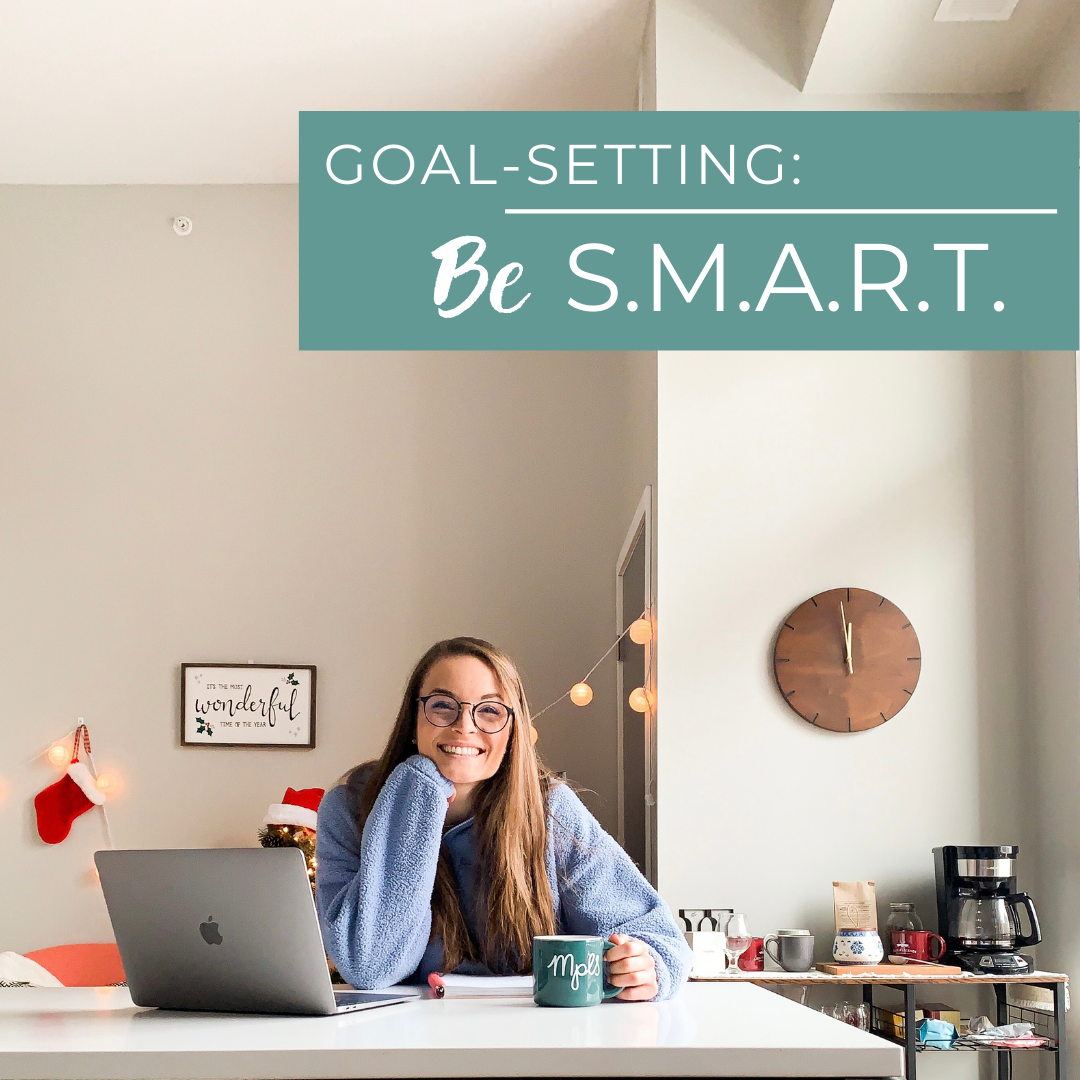‘Tis the season for setting new-year goals and resolutions! I’ve never been one who absolutely needs to set goals, but I do enjoy the process of thinking through what I want to accomplish and how I can push myself to achieve that. This year - after a challenging and eye-opening year like 2020 - I AM setting intentional goals. Some will be small (ahem… make my bed every morning) and some will be big (gather resources needed to start and succeed in my business).
WIth goals and resolutions, and high hopes for a much better year than 2020, on my brain and everyone else’s, I wanted to share a tool to help us set challenging, achievable, and sustainable goals. It’s called being SMART.
Specific
Give me the details! What exactly do you want to achieve this year? When do you want to accomplish this? How do you plan to do so? Goals are specific when a third party (not you or your friend, let’s say) is able to understand exactly what the intended outcome is. For example, I want to make my bed every morning. A less specific version of this goal would say “I want to make my bed more” while a more specific version would say “I want to make my bed every morning before I make breakfast.” Now I’ve also attached my goal to another activity I already do everyday - make breakfast. This will make it easier for me to simply take one extra minute before making breakfast to make my bed.
Measurable
Because monitoring progress is one of the best parts! How will you track progress towards your goal(s)? Without a measurement point, it’s impossible to determine whether or not a goal was achieved. For example, a goal that says “I want to increase my strength” can become measurable by instead saying “I want to bicep curl with 20-lb dumbbells by the end of January.” I’ll know I achieved my goal when I’m able to consistently curl with 20-lb dumbbells at the end of the month. Use measurement points as a source of encouragement, too! For this goal, I can add a measurement point halfway through the month - performing 2 reps of bicep curl with 20-lb dumbbells, let’s say. When I achieve that, I’ll know I’m on track to achieving my ultimate goal.
Attainable
Challenge yourself, of course, but think realistically. Is the goal you are setting actually attainable within the specified time-frame and with the resources you currently have? For a very “2020” example, let’s assume gyms in Minnesota stay closed through the end of January and into February. If I don’t have access to a treadmill, but my goal is to run a 10K on January 31st, my goal is most likely unattainable. I should set a goal for which I have the resources and time to achieve, and one that will challenge me without defeating me. If you’re still working out from home, think of creative ways to challenge yourself with the equipment you have on hand.
Relevant
What matters to YOU? I’m predicting many start-up business-related goals for 2021, since 2020 was what it was. Just because you see that all over social media doesn’t mean you need to start your own business and scale it to 6 figures by June. No no no. If cooking isn’t your favorite thing and you can afford takeout everyday, don’t set a goal to cook every meal you eat. Think about your job - are you ready for a promotion, or did you just start at the company? Think about your hobbies - do you enjoy reading? What kinds of books? Think about your daily routine - do you want to wake up earlier and write in a gratitude journal before work, or would you rather get a workout in? This is your life and these are your goals.
Timely
Most importantly, set a time frame around your goal. When do you want to achieve it? Of course, be realistic - don’t expect to achieve a goal overnight (unless your goal is one good night of sleep). But also, challenge yourself. For fitness / nutrition-related goals, work with a certified personal trainer / registered dietitian to help you determine a realistic time frame for creating an action plan to achieve your goals.
Do you feel SMARTer about setting goals this year? Good - you are! Before you go, take a moment to read through the following questions to help you think more about your goals.
What is my goal?
Why is this goal important to me?
What is one actionable step I can take towards achieving this goal?
When do I want to complete this goal?
What obstacles might arise during this process, and how can I work to overcome them?

